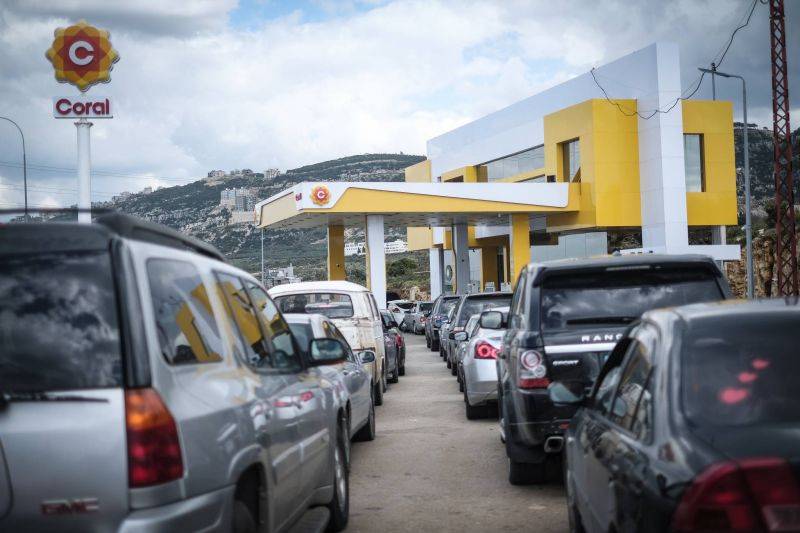
Cars queue at a gas station in April 2021. (Credit: João Sousa/L’Orient Today)
BEIRUT — Lebanon’s central bank will no longer subsidize fuel imports, Banque du Liban announced late on Wednesday, dealing perhaps the harshest blow yet to a country already struggling to procure basic goods as it reels from economic crisis.
The central bank will continue providing US dollars to finance fuel imports but at the “market” exchange rate, BDL said in a statement, without specifying the exact rate. The statement added that the Energy Ministry is tasked with setting the new fuel prices.
A BDL spokesperson told L’Orient Today that the bank will finance the imports at the “cash market” rate, which currently stands at LL20,500.
In other words, the cost of fuel looks poised to jump by as much as five times or more.
The spokesperson claimed that by financing fuel imports in lira at the parallel market exchange rate, the decision will cut down on the smuggling of fuel to Syria.
Fuel subsidies had partially ended earlier this summer, when on June 25 caretaker Prime Minister Hassan Diab gave “exceptional approval” for BDL to finance 100 percent of imports at the so-called lollar exchange rate of LL3,900 to the dollar. The bank had previously financed 90 percent of imports at the official, LL1,507.5 peg, while importers had to come up with the other 10 percent of dollars at the volatile parallel market rate.
Since then, the price of fuel has gradually risen, rendering it out of reach for many Lebanese, who even before BDL’s decision were paying twice as much for consumer goods than they were just a year ago. An average family of five now shells out five times the minimum wage for meals each month.
Then, too, the central bank — whose foreign currency reserves are known to have plunged to their critical threshold — asserted that the move to end fuel subsidies would help to combat smuggling to Syria, as well as ease the countrywide fuel shortages of recent months.
Despite these assurances, the country continues suffering from a dearth of gasoline and diesel supply, leading to hourslong queues at gas stations, prolonged electricity blackouts and a black market on which fuel products are sold at exorbitant prices.